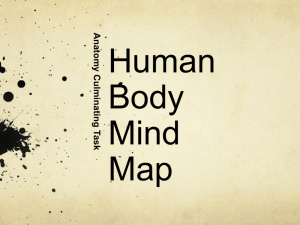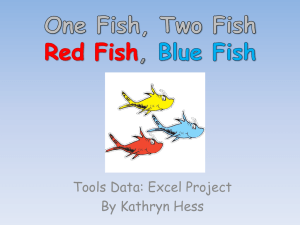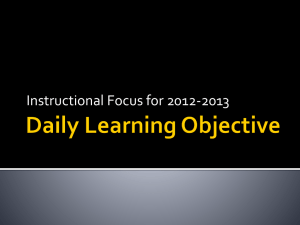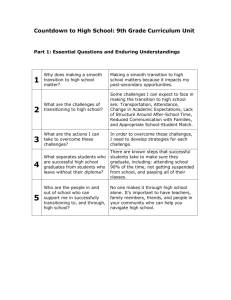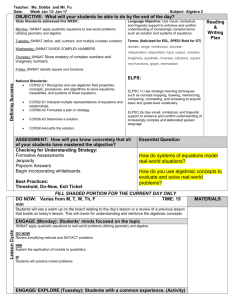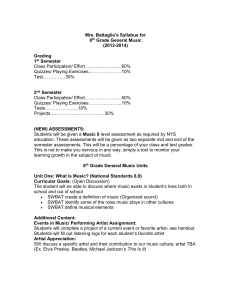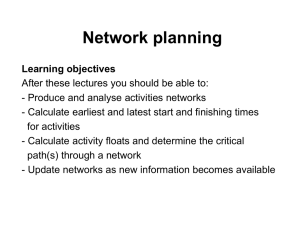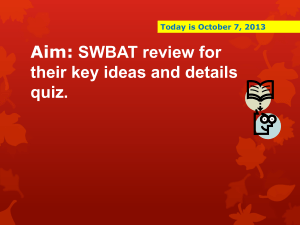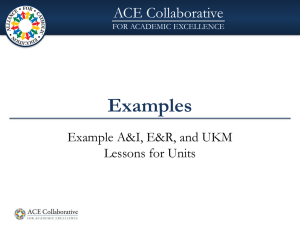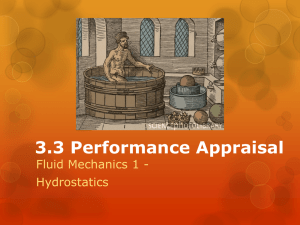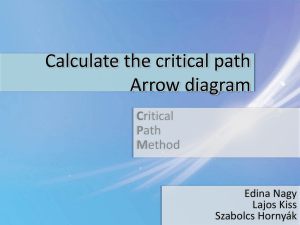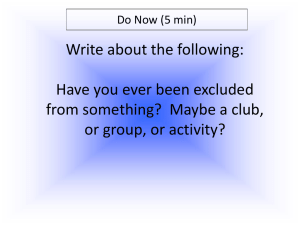Final - Juli Giumarra
advertisement
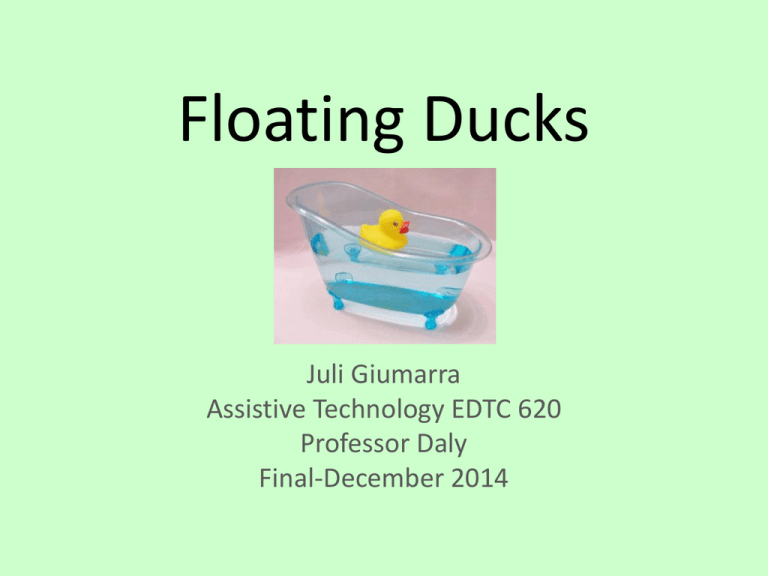
Floating Ducks Juli Giumarra Assistive Technology EDTC 620 Professor Daly Final-December 2014 Target Audience • Preschool Inclusion classroom • Students ages 3 years old-5 years old Learning Objectives • Standard 1. SWBAT make a prediction about how many cups of water it will take to make a duck float in water 2. SWBAT document their prediction of how many cups of water it will take to make a duck float in water by circling the number they predicted from 1-10 3. SWBAT observe and note details in an experiment by circling the number of cups of water it actually took to make a duck float in water 4. SWBAT demonstrate some understanding of the concepts sink or float Learning Objectives • Fundamental 1. SWBAT make a prediction about how many cups of water it will take to make a duck float in water by choosing a number from 1-10 on a number line 2. SWBAT make a prediction of how many cups of water it will take to make a duck float in water by reporting their answer to the teacher 3. SWBAT demonstrate minimal understanding of the concepts sink or float Learning Objectives • Advanced 1. SWBAT explain why predictions made were correct or incorrect 2. SWBAT observe and document their findings in an experiment by writing their answer using the correct numbers 3. SWBAT classify objects into categories of sink or float Lesson Components • How many cups of water does it take to get the rubber duck to float? • Is the rubber ducky floating? Universal Instructional Design • • • • • • Physical environment Health and safety practices Social-emotional environment Teaching environment Individual assessment and program evaluation Family involvement Practices Activities that will be in this lesson: • • • • Standard level activities (small groups of 3 or 4) Fundamental (small groups-working with partner) Computer/technology based Strategy for enhanced level Adapted Materials • Closed captions on the YouTube video • Specialized seating • Hands-free computer access assistive technology • Closed Circuit Television • Large chart • Large cups • Broken crayons Activities/Strategies/Techniques • Autism • ADHD/Learning Disability • Mental illness/Emotional Behavior Disorder Sources • Conn-Powers, Cross, Hutter-Pishgahi, and Traub. The Universal Design of Early Education, Moving Forward for All Children. Beyond on the Journal. September 2006. Print. • Lighthouse International. www.lighthouse.org. • Curb Cuts Videos. www.YouTube.com.
